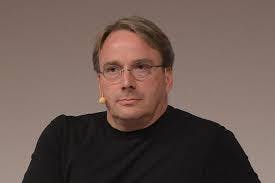So, just like Windows, Mac OS, and IOS, Linux is an operating system. In fact, it is one of the most popular platforms on the planet. Android, one of the most widely used OS in smartphones is powered by the Linux operating system.
What is an OS(Operating System)?
An operating system is software that manages all the hardware resources associated with your desktop or laptop. Simply put, the operating system manages the communication between your software and your hardware. Without the operating system (OS), the software wouldn’t function.
Why use Linux🌟?
Why the heck do we even need Linux? Why can't we settle for other OS like Windows which are easy to use?
Open Source: Linux is open source, that is the source code is available publicly, and anyone with programming knowledge can modify, contribute and enhance its performance.
Free: It is one of the biggest advantages of the Linux system that it is free to use. We can easily download it, and there is no need to buy a license for it.
Security: Linux is not completely safe, but it is less vulnerable than others. Each application needs to authorize by the admin user. The virus is not executed until the administrator provides the access password. Linux systems do not require any antivirus program.
Performance: Linux system provides high performance over different networks. It is capable of handling a large number of users simultaneously. That is the reason a large number of servers use Linux as their OS.
Lightweight: Linux is lightweight. The requirements for running Linux are much less than other operating systems.
Stability: Linux is more stable than other operating systems. Linux does not require rebooting the system to maintain performance levels. It rarely hangs up or slows down.
Who made Linux and why 🤔?

In 1969, a team of developers of Bell Labs started a project to make a common software for all the computers and named it 'Unix'. It was simple and elegant, used 'C' language instead of assembly language and its code was recyclable.
Then in 1983, Richard Stallman developed the GNU project with the goal to make it a freely available Unix-like operating system to be used by everyone. But his project failed in gaining popularity.
In 1991, Linus Torvalds a student at the University of Helsinki, Finland, who thought to have a freely available academic version of Unix started writing its own code. Later this project became the Linux kernel.
What are "distributions" in Linux?
Linux has a number of different versions to suit any type of user. These versions are called distributions (short form, “distros”). Nearly every distribution of Linux can be downloaded for free, burned onto disk (or USB thumb drive), and installed (on as many machines as you like).
Popular Linux distributions include:
- Ubuntu
- Linux Mint
- Kali Linux
- Debian
- Fedora
- Elementary OS
Check the distributions here Distrowatch.
That's all for this part. More knowledge is to be shared soon.